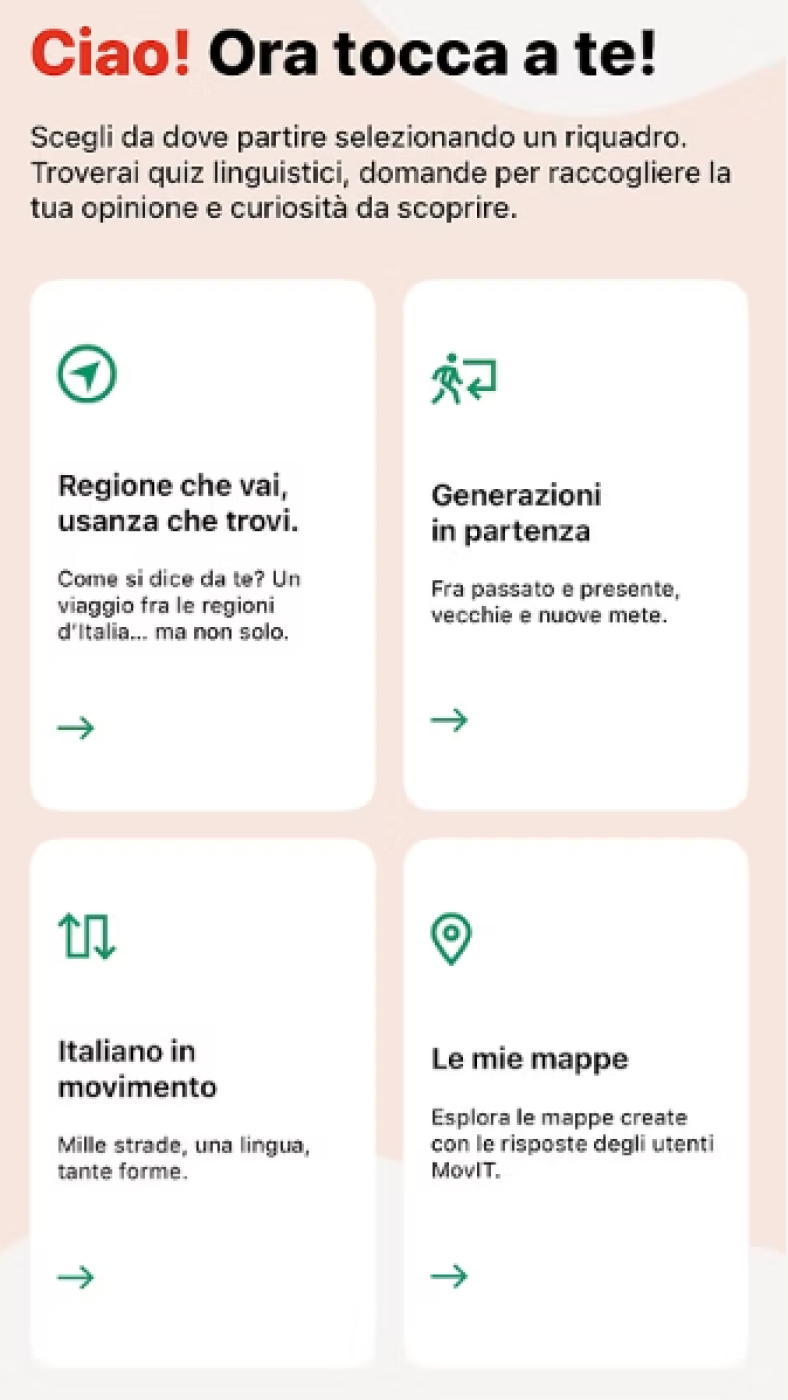
The Vrije Universiteit Brussel (VUB), in collaboration with KU Leuven, the University of Bern, and the University of Turin, has launched the innovative MovIT – Moving Italian(s) app. Using crowdsourcing, the app tracks changes in the Italian language among Italians living across the globe. The project is unique in its scope: for the first time, researchers are systematically measuring how a standard language evolves under the influence of migration and digital connectivity.
From Belgium to Canada, Argentina to Germany, millions of Italians live outside their country of origin. But how does this affect their use of the Italian language? And what does it mean for the future of Italian?
“In many societies – including both Belgium and Italy – language change often sparks fierce debate”, says Professor Stefania Marzo (KU Leuven). “Shifts in standard language are quickly labelled as deterioration. But what’s really changing? And is it actually changing that much? These are the questions we aim to answer with data."
The MovIT app collects language data from Italians abroad through crowdsourcing. Users can fill out surveys, record voice samples, and take part in interactive quizzes. In doing so, the app builds a unique database on how Italian is used in migration contexts.
“The MovIT app allows us to measure language change on a global scale. Thanks to digital tools and the active participation of users, we’re creating an unprecedented dataset that sheds light on how migration and connectivity influence language in dynamic ways”, says VUB professor Stefano De Pascale, co-initiator of the project.

Migration as a language laboratory
The current wave of migration from Italy – driven by economic shifts, digital transformation, and increased international mobility – presents a rare opportunity to observe language change in real time.
“Italian is alive in the diaspora – and it's evolving in ways we often don’t fully know or understand”, says Professor De Pascale. “Thanks to MovIT, we can now map this evolution, with the help of the community itself.”
“This migration provides us with an ideal language laboratory”, explains Chiara Arcadio, a doctoral researcher at KU Leuven. “We’re able to follow how language evolves far from the homeland, shaped by new contexts, contacts and cultures. This is a unique opportunity to study how a standard language changes over time.”
The MovIT app plays a central role in this research. By crowdsourcing data from Italians living abroad – through surveys, voice recordings, and playful features such as quizzes and maps – the app encourages active participation. The result is a unique dataset that offers insights into how language use and linguistic norms are shifting.
“Language is alive. And in the context of migration, you really see how flexible and creative people can be with language”, concludes Professor Stefania Marzo. “By measuring this on a global scale, we gain a completely new perspective on standard language as a dynamic phenomenon.”
About the project
The MovIT – Moving Italian(s) project is a collaborative effort carried out under the WEAVE programme, an initiative for international research coordination between the Research Foundation – Flanders (FWO) and the Swiss National Science Foundation (SNSF). The project is led by researchers from KU Leuven, Vrije Universiteit Brussel (VUB), the University of Bern (Prof. Silvia Natale, Prof. David Britain, and Benedetta Piceni), and the University of Turin (Prof. Massimo Cerruti).
Contact
- Website: Home | Movit
- Press contact: Dr Stefano De Pascale, VUB Professor of Italian Linguistics